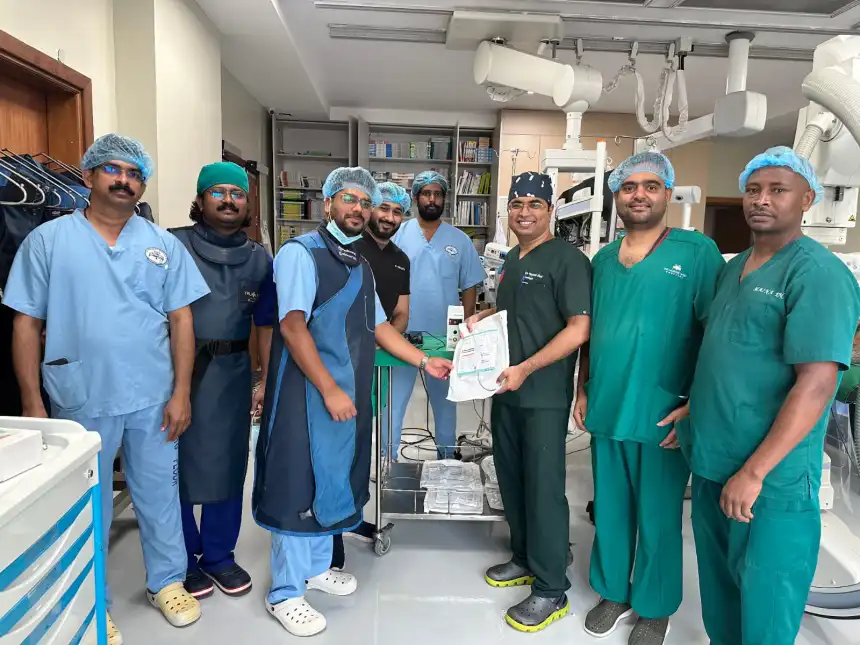Kenyan doctors have successfully performed a rare heart procedure using Intravascular Lithotripsy (IVL), marking only the second time the advanced technique has been carried out in Africa. The milestone took place at The Nairobi West Hospital under the leadership of Dr. Vijaysinh Patil, an interventional cardiologist.
The procedure was conducted on a 68-year-old man who had suffered a heart attack three weeks earlier. Tests revealed multiple severely calcified blockages in his coronary arteries conditions notoriously difficult to treat. Traditional angioplasty balloons often fail in such cases because the arteries become as rigid as concrete pipes. Attempting to force them open risks vessel damage, while many patients are usually referred for open-heart bypass surgery.
“For this patient, bypass surgery was not possible due to unsuitable vessels, and he was also reluctant to undergo major surgery,” Dr. Patil explained. “That left us with very limited options.”
IVL provided a lifesaving alternative. The minimally invasive procedure uses a balloon catheter that emits controlled sonic waves inside the artery. These waves fracture hardened calcium in the vessel wall without damaging surrounding healthy tissue, restoring flexibility so that stents can be safely implanted.
In this case, doctors used IVL to clear two blocked arteries before placing two stents with precision. The patient recovered well and was discharged the following day.
The breakthrough adds to Kenya’s growing list of advanced heart interventions. Last year, doctors performed the country’s first Transcatheter Aortic Valve Implantation (TAVI), replacing a narrowed heart valve without open surgery. Another innovation, renal artery denervation, was also introduced to help patients with drug-resistant hypertension.
Experts say these developments reflect Kenya’s rapid progress in minimally invasive cardiology, offering patients safer alternatives to surgery while reducing recovery times and hospital stays. Cardiovascular disease remains one of the leading causes of death in Kenya, with ageing populations and lifestyle changes fueling rising cases.
“The introduction of IVL is not just a technical achievement,” Dr. Patil noted. “It represents progress in making advanced cardiac care accessible to our people. Patients who once had no option beyond risky surgery can now be treated safely at home.”

